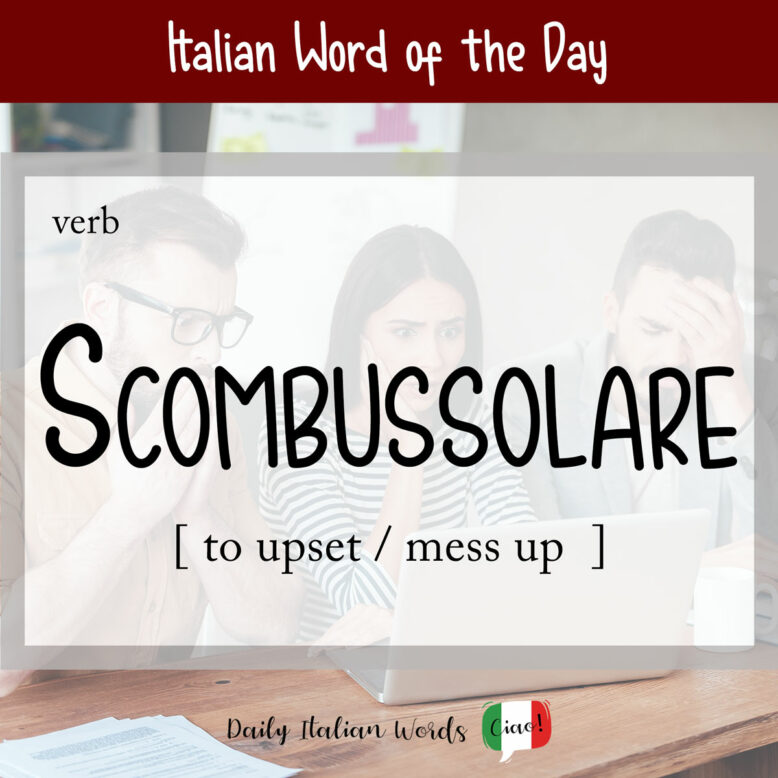Life is often full of unexpected twists and turns that can throw our plans into disarray and leave us feeling disoriented. Whether it’s a sudden change of circumstances, unforeseen obstacles, or a series of unpredictable events, these disruptions can leave us grappling with frustration. An Italian verb that is often used to describe this kind of tumultuous situation is scombussolare which means “to mess up” “to turn something on its head” “to disrupt” or “to upset”.

The verb scombussolare has not one, but two proposed origins. According to Devoto-Oli, it is derived from bussola, meaning compass, while Treccani and Vocabolario etimologico della lingua italiana both suggest it comes from bussolo, a regional term for box.
Regardless of its etymology, the addition of an s- at the beginning of a word usually gives it the opposite meaning, similar to the English prefix un-. So, when referring to a compass, scombussolare evokes the image of a compass gone haywire, while in the case of the box theory, it suggests that the once neatly organised contents inside the box have become separated.
As an -ARE verb, scombussolare follows a highly regular conjugation pattern as you can see below:
- io scombussolo
- tu scombussoli
- lui / lei scombussola
- noi scombussoliamo
- voi scombussolate
- loro scombussolano
La neve potrebbe scombussolare tutti i nostri piani.
The snow might disrupt all our plans.

The adjective scombussolato (feminine: scombussolata), on the other hand, is used to describe the feeling of being shaken, unsettled or, to use a slang term, out of whack.
È ancora scombussolato per quel brutto incidente in moto.
He is still shaken because due to that bad motorcycle accident.
Scombussolare also exists as a intransitive pronominal verb: scombussolarsi.
Finally, there is also the noun scombussolamento. (i.e. lo scombussolamento delle vacanze = the upset of the holidays).
Heather Broster is a graduate with honours in linguistics from the University of Western Ontario. She is an aspiring polyglot, proficient in English and Italian, as well as Japanese, Welsh, and French to varying degrees of fluency. Originally from Toronto, Heather has resided in various countries, notably Italy for a period of six years. Her primary focus lies in the fields of language acquisition, education, and bilingual instruction.


